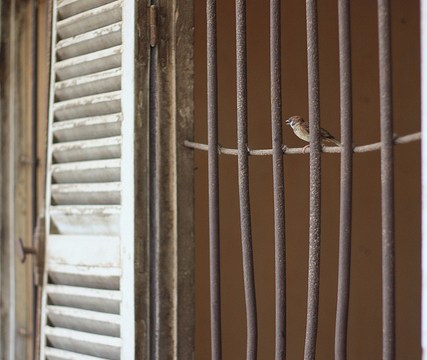How to Save Some Green This Memorial Day

This idea was suggested by Big Think Delphi Fellow Dr. Jochen Mundinger.
What’s the Big Idea?
We’ve all seen the emails. Letters of confirmation from airlines with a travel itinerary and estimated total travel time. So how is it that that four-hour plane ride turns into an eight-hour day? Door-to-door travel times are often dramatically longer than the letter of confirmation leads you to believe, and one company, routeRANK, is capitalizing on the discrepancy, and in the process of so doing, redefining what travel efficiency actually means.
In our modern search for efficiency, time and money are often regarded as paramount. What is the fastest route from the Starbucks at Union Square to Red Rooster in Harlem? What is the cheapest mode of transportation from your hotel to the airport? During the seventh inning stretch, what is the shortest distance from your seat in the bleachers to the restroom?
But more and more, efficiency is measured in terms of the carbon footprint left behind. routeRANK’s technology has the potential to redefine the way we travel, whether we’re taking a day trip to the park, or a month-long journey around the world.
Why is it Ground Breaking?
This Memorial Day weekend AAA estimates that 34.8 million people will travel 50 miles or more, an increase of 100,000 since last year. A search on routeRANK over this same period reveals something surprising. The most expensive trips aren’t the greenest, and the greenest trips aren’t for that matter the least convenient. In other words, being green takes less sacrifice than you might think – and now that the information is in your hands, it really is quite painless.
Dr. Jochen Mundinger, founder of routeRANK and one of MIT’s Top Young Innovators says, “It’s certainly not true that greener trips take longer and are more expensive. Especially when you consider door-to-door travel.”
routeRANK searches travel modes utilizing road, rail and air travel, and gives you a list ranging from just a few options, to pages of options, each with the ability to prioritize the results based on mode, price, time or carbon emissions. As a result their estimated travel times actually reflect the real world travel time. And their door-to-door search with CO2 output measurements gives you the option to make environmentally-conscious purchases.
In one Memorial Day search, consisting of a trip from New York to Washington D.C., the smallest carbon footprint–a trip using the MTA, a plane and a commuter buss–was actually 10 dollars cheaper than the trip with the largest footprint–a trip using a car, a plane, and another car. And the low-carbon trip was only fifteen minutes longer. In this example, fifteen minutes of time saved the environment 62 pounds of carbon pollution. And with the money saved, you can afford to enjoy a cold beer while you wait.
Mundinger says his company isn’t looking to reinvent the wheel where services are already streamlined, but through integrating various providers routeRANK allows its users to consider the big picture, and if they want, make environmentally-conscious purchases.
Why Should You Care?
As technologies develop, making green decisions more affordable, more of us will make them. Everyone has a stake in the game, but not everyone knows his or her role. The small decisions matter, like deciding to use cloth diapers, reusable water bottles, and efficient travel. But people also want to feel they’re making a difference, and routeRANK does just that.
Things to Remember:
routeRANK is a Swiss company, recently expanded to the U.S. Don’t forget, most of Europe calls gasoline “petrol,” and switches the month and the day when writing dates. So, 5/8/2011 is actually August 5th, 2011 – don’t book the wrong dates! Also, 1 kg is 2.2 pounds and pants are underwear, while trousers are pants. The rest is up to you. Good luck and safe travels.
Further Resources:
National Geographic’s Center For Sustainable Destinations
7 Eco-Friendly Travel Tips





